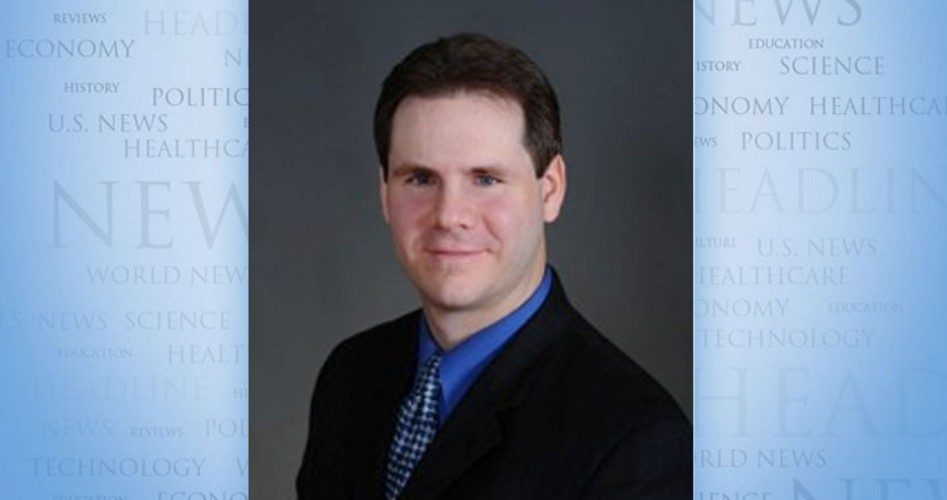
One unmentioned irony of the Chris Christie road-revenge scandal is that the powers-that-be finally found a traffic jam they didn’t like. Now, don’t get me wrong, having always lived in the N.Y. metropolitan area and often having wanted to split a vein while in the midst of the N.Y./N.J. road experience, I think that anyone who purposely exacerbates traffic problems should be confined to a small cell and forced to listen 24/7/365 to Nancy Pelosi’s nails-on-blackboard speeches. But I have to tell you: It has always seemed that NY and NJ public officials have utter disregard — if not contempt — for drivers in their states. In fact, their policies have long had the effect of exacerbating traffic problems.
Consider a common N.Y./N.J. driving experience. You’re traveling north on the New Jersey Turnpike — passing exits 10, 11, 12, 13, 14 — and then all of a sudden the road transitions into a parking lot that you’re trapped in for an hour and a half. The cause?
The turnpike toll plaza some miles ahead.
Of course, it’s not always that bad, although it can be during holidays, bad rush hours, and when other complicating factors manifest themselves. But the point is this: Where is the logic in collecting revenue by stopping traffic on a heavily traveled roadway in a densely populated urban area? With the Christie situation, it seems that some officials have finally discovered that traffic jams lead to wasted resources (fuel), diminished productivity, and possibly lost lives (the 91-year-old woman who died in an ambulance stuck in the traffic). But politicians don’t seem to care when these problems are visited upon the citizenry in the name of a government cash cow.
Moreover, few remember that many tolls were only meant to be in place until the projects they were associated with, such as certain bridges, were paid off. Instead, they became de facto taxes that the government can raise almost with impunity. And for all of you folks dealing with politicians who propose instituting tolls with the reassurance that they’ll only be this or that much, understand how expensive they can get. The fleecing when crossing the GWB (George Washington Bridge) is now $13 for cars, and the peak E-ZPass rate for trucks with six or more axles is $84. (Mind you, since most products are shipped via truck, we all pay for the latter through higher consumer costs.) And if you then travel the N.J. Turnpike from the GWB to the roadway’s end (Exit 1, the Delaware Memorial Bridge) — a mere 113.8 miles — the turnpike toll is another $13.85. That means a round trip taking you back over the GWB will run you $40.70 in tolls alone. And while the average commute might cost $15 less, one still wonders how the common man could afford it.
Then there is the incessant construction that anyone who lives in the NYC metro area knows painfully well. You hit a traffic jam, and 15 minutes later you find out it’s because a lane or two have been closed. You then drive at a snail’s pace past one and a half miles of orange pylons — without observing any work or workers at all. But then finally you do see three union hacks doing their thing. This consists of one, let’s say, doing some digging. Another seems to watch him.
The third is eating a doughnut.
Perhaps I exaggerate slightly, but the proof is in the pudding. It took a mere year and 45 days to build the Empire State Building, and the GWB — which upon its opening in 1931 was the world’s longest main span in the world — was completed in only four years. In contrast, how long do you think it took to effect basic road repair on the 10-mile-long Cross Westchester Expressway (I-287) in N.Y.?
More than 10 years.
And it was the usual story: many lane closures, traffic jams from Hell, and very little apparent work.
I concluded a long time ago that road repair in N.Y. and N.J. was basically a quasi-welfare program. In fact, I remember when, a generation ago, former N.Y. governor Mario Cuomo appeared in TV spots encouraging people to vote “yes” on a “Proposition 1,” which allocated one billion dollars for road repair. I always wondered why Cuomo was so anxious to get that bond passed and where the money went — especially since N.Y. roads still stink.
As should always be the case in government, the GWB affair should be sifted to the very bottom. But the real road scandal in N.Y. and N.J. involves government-authored traffic jams that neither Gov. Christie nor Gov. Andrew Cuomo seem to care a whit about.
Contact Selwyn Duke, follow him on Twitter or log on to SelwynDuke.com


